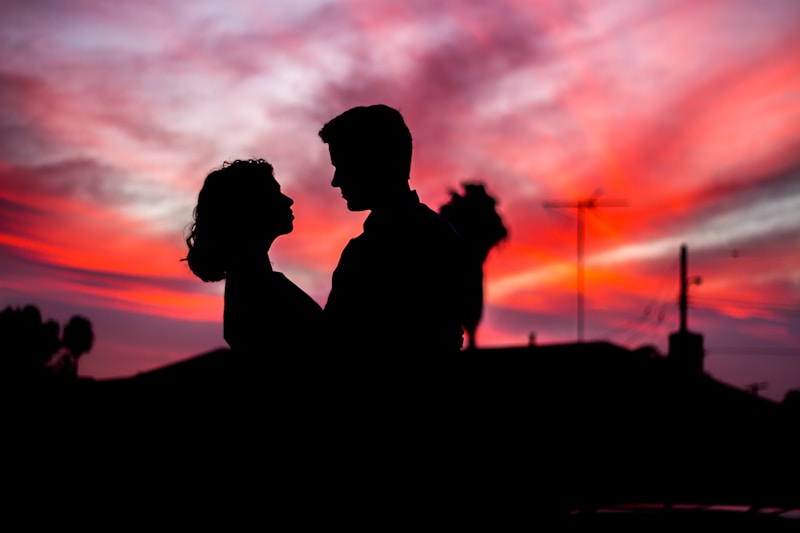Understanding the Symbolism in Wedding Rings and Vows
The Deep Meaning Behind Wedding Rings and Vows
When it comes to weddings, the significance of wedding rings and vows cannot be overstated. They are not just beautiful adornments or a series of words; they represent a commitment that goes deep into the fabric of human relationships. This article will explore the rich symbolism embedded in wedding rings and vows, how they differ across cultures, and their importance in modern society.
What Do Wedding Rings Symbolize?
Wedding rings are often seen as a physical manifestation of love and commitment. Traditionally made of precious metals such as gold or platinum, these rings serve as a circle, symbolizing eternity and the unending nature of the vows shared between partners.
| Symbol | Meaning |
| Circle | Eternity and completeness |
| Material (Gold) | Purity and wealth |
| Inscriptions | Personal dedication |
1. The Circle of Love: The circle of a wedding ring symbolizes an everlasting bond. Unlike other shapes, a circle has no beginning and no end, representing a relationship that is meant to last through time.
2. Choice of Material: Gold is often chosen for wedding rings because it symbolizes the purity and wealth of the relationship. However, many couples are now opting for alternative materials like titanium or even silicon, which can signify a more modern approach to love.
3. Personal Touch: Many couples choose to inscribe a message or their wedding date inside the ring. This personal touch adds another layer of symbolism, making the ring a unique representation of their love story.
The Significance of Vows
While wedding rings capture the essence of a couple's commitment, vows articulate the promises made to one another. Vows are not merely words; they are declarations that hold immense significance.
1. The Traditional Vows
Traditional vows, often rooted in religious or cultural practices, carry the weight of history and tradition. For example, the classic vows, "to have and to hold, from this day forward, for better, for worse," encompass a range of promises made between partners.
2. Modernized Vows
In contrast, many couples today choose to write their own vows, reflecting their unique relationship and shared experiences. This personalization allows for a more profound connection, as the words spoken are tailored specifically to the bond they share.

Cultural Perspectives on Wedding Rings and Vows
The symbolism of wedding rings and vows varies significantly across cultures. For instance, in some cultures, wedding rings are worn on the right hand instead of the left, while others may incorporate designs that reflect cultural heritage.
1. Indian Culture
In India, wedding rings may be exchanged during a ceremony known as "Saptapadi," where couples take seven steps together. The ring symbolizes the promises made during these steps and the unity of two families.
2. Western Culture
In many Western cultures, the engagement ring is often presented before the wedding ring. The engagement ring symbolizes the promise of marriage, while the wedding ring represents legal and spiritual binding.
Modern Interpretations
As society changes, so do the interpretations of wedding rings and vows. The rise of same-sex marriages, for example, has led to new meanings tied to these symbols. For some, the wedding ring is not just a personal symbol but also a representation of social acceptance and love in its many forms. Vows have also evolved; couples are more open to expressing their love in ways that resonate with their personal experiences, breaking traditional molds.
The Importance of Ritual
The act of exchanging rings and reciting vows holds a significant place in many occasions. It marks a transition not just for the couple but also for their families and friends who witness this union.
1. Building Community
Ceremonies create a space for loved ones to come together and share in the couple's joy. The rituals performed during weddings, like exchanging rings and vows, reinforce community bonds and support the couple's commitment.
2. Emotional Connection
These rituals help deepen emotional connections not just between the couple but also among their family and friends. Sharing in such an intimate moment allows attendees to reflect on their own relationships and commitments.
Conclusion: The Lasting Impact of Wedding Rings and Vows
In conclusion, the symbolism in wedding rings and vows goes beyond mere tradition or design; it encapsulates the essence of love and commitment that couples vow to uphold. The circular nature of wedding rings signifies eternity, while the personalized nature of vows reflects each couple's unique journey. As societal norms evolve, the meaning of these symbols continues to adapt, showcasing the enduring nature of love in all its forms.
Whether choosing a classic design or crafting personalized vows, understanding the deeper meaning behind these symbols can enrich the wedding experience. As you prepare for your own special day or reflect on your relationship, consider the significance behind every promise made and every ring exchanged, as these elements form the foundation of what marriage embodies.
Note: If you’re considering getting married, take the time to discuss what these symbols mean to you and your partner. Creating a special ritual around your wedding rings and vows can make the occasion even more meaningful.